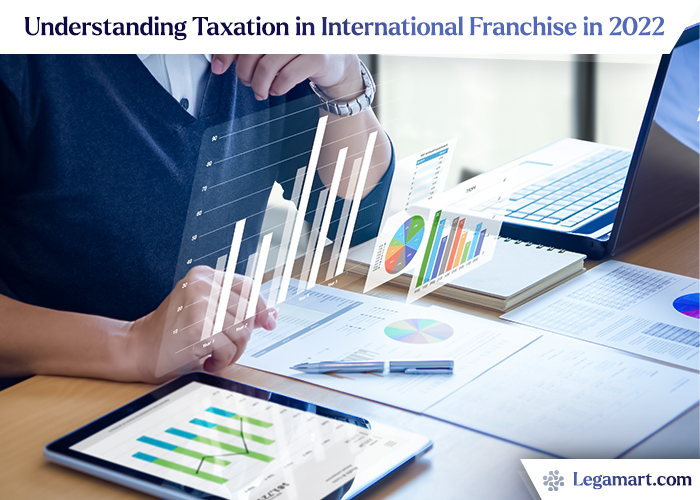Commercial and Business Law
Tax
Your business must abide by all local regulations, including tax rules, if it conducts business in several jurisdictions. This frequently means that if your business conducts business abroad, it must also pay the necessary taxes there. Tax concerns, particularly foreign tax issues, can cause businesses significant legal and financial headaches.
-
Taking steps that may make you exposed to foreign taxes
-
Keeping your company’s foreign tax obligations to a minimum
-
Transfer prices
Taking steps that may make you exposed to foreign taxes
There are numerous corporate activities that might make you liable for foreign taxes. Depending on the nations in where you operate, these actions may or may not contain specific things. Some of the most typical business activities that could subject you to taxation in nations other than your own include the following:
- The presence of personnel working outside of your own country;
- The presence of a business office outside of your country.
- Possessing property outside of your country;
- Doing a significant transaction in a foreign nation.;
- Marketing your goods internationally;
- or Keeping offshore bank accounts.
To determine your tax liability for taxes outside of your home country, an international tax attorney can assist you in considering the operations and presence of your company abroad.
Keeping your company’s foreign tax obligations to a minimum
Small international startups and large multinationals alike can take use of international tax regulations and treaties to reduce the amount of taxes they ultimately have to pay. To reduce your company’s international tax liability, it is essential to engage in international tax planning. Discussing your tax alternatives in relation to the nations in which you do business and coordinating company interests and decisions with those needs constitute international tax planning. By putting into practice a thoroughly thought-out foreign tax plan, many organizations experience significant savings.
Transfer prices
Transfer pricing is a typical, though more contentious, strategy for reducing your company’s global tax burden. A sequence of intra-company transactions are used to allocate a company’s income to the various tax countries where its subsidiaries operate. This process is known as transfer pricing. These days, businesses frequently do this to divert income to countries with low or no taxes, so lowering their overall tax obligation.
It may be deemed abusive when this is accomplished by including stages in an intercompany transaction that serve no purpose other than to ensure that the majority of the profit is generated in a low income tax jurisdiction. This can be used by the IRS and some other international taxing authorities to recoup penalties and the “saved” taxes.
Find Best Lawyers and Legal help in
Latest Articles
Tell us more about your problem.
Please give a brief description about what it is you need to talk to our lawyers about ?
Frequently Asked Questions
What are the tax implications of operating a business in multiple countries and how can I minimize my tax liability?
Operating a business in multiple countries can have significant tax implications, including potential double taxation and compliance with different tax laws and regulations. Here are some ways to minimize your tax liability when operating a business in multiple countries:
Tax treaties: Many countries have tax treaties that provide relief from double taxation by allowing businesses to claim foreign tax credits or to pay taxes at reduced rates.
Transfer pricing: Transfer pricing refers to the pricing of transactions between related parties in different countries. Setting appropriate transfer prices can help minimize taxes in high-tax jurisdictions while maximizing deductions in low-tax jurisdictions.
Entity structure: The choice of entity structure for your business can affect your tax liability. For example, setting up a subsidiary in a country with lower tax rates can help reduce your overall tax burden.
Tax planning: Effective tax planning involves analyzing your business operations and identifying opportunities to minimize your tax liability. This may involve restructuring your operations, moving profits to lower-tax jurisdictions, or taking advantage of available tax incentives.
Compliance: It’s essential to comply with all applicable tax laws and regulations to avoid penalties and legal risks. Working closely with tax advisors and professionals can help ensure that you remain compliant with all relevant tax requirements.
Digital tools: Using digital tools such as tax calculators that take into account the different tax rates of each country can help minimize tax liability.
It’s important to note that tax laws and regulations vary widely between countries and can be complex. To minimize your tax liability when operating a business in multiple countries, it’s essential to work with qualified tax professionals who specialize in cross-border tax issues, and who can help develop effective tax strategies that meet your business needs while remaining compliant with all applicable tax laws and regulations.
How can I structure international transactions to ensure compliance with transfer pricing regulations and avoid double taxation?
To structure international transactions to ensure compliance with transfer pricing regulations and avoid double taxation, it is important to have a solid understanding of both the tax laws of the countries involved and the OECD transfer pricing guidelines. Businesses should document their transfer pricing policies and transactions thoroughly, and ensure that they are consistent with the arm’s length principle. Additionally, it may be beneficial to engage a qualified tax advisor or transfer pricing specialist to assist with compliance efforts.
What are the legal requirements for establishing a tax-efficient holding company to manage my international operations?
The legal requirements for establishing a tax-efficient holding company will vary depending on the jurisdiction in which the company is being established. However, in general, it may be advantageous to establish a holding company in a country with favorable tax laws and a robust network of tax treaties. Businesses should consult with a qualified tax advisor to determine the best approach for their specific circumstances.
Are there any tax exemptions or incentives available for businesses operating in the UK?
Yes, there are various tax exemptions and incentives available for businesses operating in the UK. These include the research and development (R&D) tax credit, capital allowances for investments in certain assets, and tax relief for losses incurred in the early stages of a business. It is important to consult with a qualified tax advisor to determine eligibility for these incentives and ensure compliance with applicable regulations.
How can I take advantage of double taxation treaties between different countries to reduce my overall tax burden?
Double taxation treaties can be a valuable tool for reducing overall tax burden for businesses operating internationally. To take advantage of these treaties, businesses should ensure that they are in compliance with the relevant tax laws and regulations of both countries involved, and that they are properly documenting their cross-border transactions.
What are the most tax-friendly countries for businesses and investors, and what are the legal requirements for establishing a presence in those countries?
The most tax-friendly countries for businesses and investors will depend on a variety of factors, including the specific industry and business model. However, some countries that are often cited as being particularly tax-friendly include Ireland, Singapore, the Netherlands, and Switzerland. The legal requirements for establishing a presence in these countries will vary, and businesses should consult with a qualified advisor to determine the best approach for their specific circumstances.
What are the different types of taxes that businesses need to consider in the United Kingdom, China, South Africa, or Brazil?
The different types of taxes that businesses need to consider will vary by country. In the United Kingdom, businesses may need to consider taxes such as corporate income tax, value-added tax (VAT), and payroll taxes. In China, taxes may include corporate income tax, VAT, and individual income tax. In South Africa, taxes may include corporate income tax, VAT, and payroll taxes. In Brazil, taxes may include corporate income tax, social security contributions, and various other taxes at the federal, state, and local levels.
How do the tax laws in these countries affect cross-border transactions and investments?
Tax laws can have a significant impact on cross-border transactions and investments, as different countries may have different tax rates, rules, and regulations. It is important for businesses to ensure that they are in compliance with all relevant tax laws and regulations, and to consult with a qualified advisor to determine the best approach for their specific circumstances. Additionally, businesses may want to consider implementing tax planning strategies to minimize their overall tax burden.
What are some common tax disputes that arise in these countries, and how can they be resolved?
Some common tax disputes that can arise in these countries include transfer pricing disputes, disputes over the interpretation of tax treaties, and disputes over the tax treatment of specific transactions or assets.
To resolve these disputes, businesses can take a variety of approaches, depending on the nature and severity of the dispute. Some potential strategies include:
Negotiation: In many cases, disputes can be resolved through negotiation between the taxpayer and the tax authorities. This may involve providing additional information or documentation to support the taxpayer’s position, or proposing a compromise solution.
Alternative Dispute Resolution (ADR): ADR methods such as mediation or arbitration can be used to resolve disputes outside of the formal court system. This can be a quicker and less costly approach than traditional litigation.
Litigation: In some cases, formal litigation may be necessary to resolve a tax dispute. Businesses should engage qualified legal counsel to represent them in court and ensure that their rights are protected.
Advance Pricing Agreements (APAs): APAs are agreements between taxpayers and tax authorities that establish a transfer pricing methodology for a specific set of transactions. These agreements can help to prevent transfer pricing disputes from arising in the first place.
Mutual Agreement Procedures (MAPs): MAPs are mechanisms provided for under tax treaties that allow taxpayers to request assistance from both the tax authorities in their home country and the tax authorities in the country where the dispute has arisen. This can be a useful tool for resolving disputes related to the interpretation of tax treaties.
In general, businesses should work proactively to prevent tax disputes from arising by ensuring that they are in compliance with all relevant tax laws and regulations and properly documenting their transactions. Additionally, businesses should engage qualified advisors to assist with tax planning and dispute resolution strategies.












